Colin Espie: The Sleep Professor’s Impact on the World of Sleep Medicine
The secret of getting a good night’s sleep has plagued people for centuries. There are countless holistic treatment options, home remedies, and sleep medications designed to help insomnia sufferers finally achieve that elusive, restorative sleep they so desperately need. Scientists, doctors, and sleep experts work tirelessly to uncover not just the cause of sleep disorders and disturbances but alternative treatment methods.
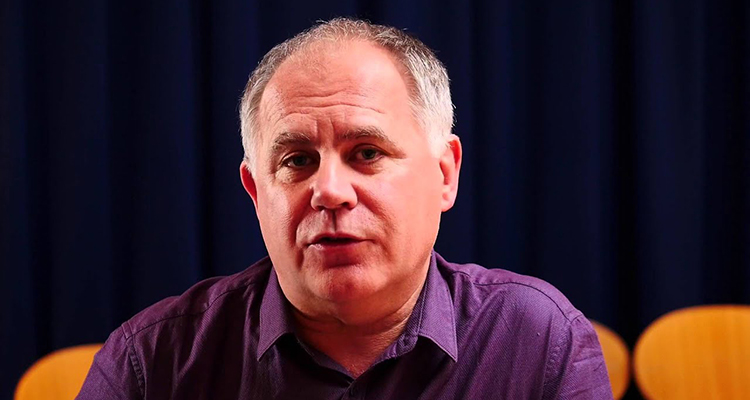
Colin Espie is one such expert. A professor of sleep medicine and an advocate for CBT-i (cognitive behavioral therapy for insomnia), Espie has made numerous contributions to the world of sleep medicine.
Keep reading to learn more about Espie’s career, theories, and impact on insomnia treatment over the years.
Content
Education, Experience, and Background
Before we discuss how Espie changed the landscape of sleep therapy and medicine, let’s take a closer look at his education and credentials that make him a qualified professor of sleep medicine.
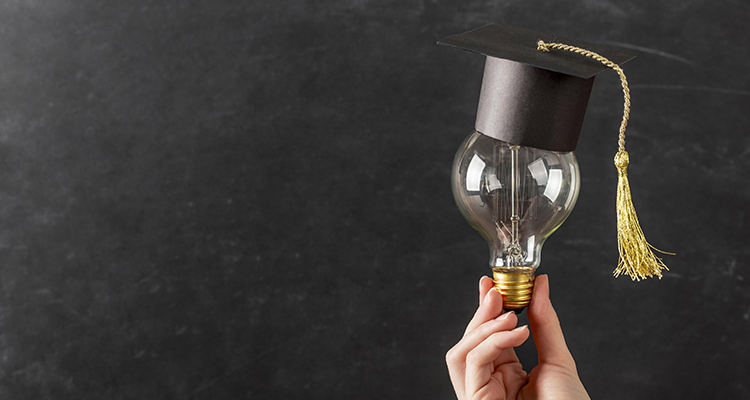
Education, Credentials, and Affiliations
Colin Espie became a qualified clinical psychologist in 1980 before graduating from the University of Glasgow with a Ph.D. and DSc in sleep disorders and going on to become the founding director of the university’s sleep center from 1995 to 2012. Espie then moved to Oxford in 2013.
Espie is currently the Emeritus Professor at the College of Medical, Veterinary, and Life Sciences in Glasgow and an adjunct professor at multiple universities including Sydney, Rome, and Rochester, New York. Espie holds a position as Professor of Sleep Medicine in the Nuffield Department of Clinical Neurosciences (NDCN) at the University of Oxford. Here, he founded the Experimental & Clinical Sleep Medicine research program and sleep institute. Espie is the director of the Oxford Online Program in Sleep Medicine.
In addition to teaching, Espie was the chair of the Scientific Committee of the European Sleep Research Society (ESRS) and currently serves on both the sleep education and sleep medicine committees. Other titles Espie holds include the chair of the World Sleep Federation and the deputy editor of both the Journal for Sleep Research and the journal of the American Academy of Sleep Medicine (SLEEP). Espie currently sits on the editorial board of the Behavioral Sleep Medicine journal.
Espie’s main expertise is in the clinical and laboratory assessment of sleep disorders and their treatment. He’s focused his career on the treatment and maintenance of insomnia. Espie is particularly fascinated by the relationship between sleep and mental health and metabolic health.
Career
As part of Espie’s long professional career, he’s also credited with co-founding Big Health along with entrepreneur Peter Hames. Big Health is a behavioral medicine company that offers online mental healthcare using digital therapeutics. The first program Espie developed in 2010 was an online CBT-based sleep improvement program called Sleepio. Espie’s mission was to make CBT insomnia accessible to everyone. Since its launch, Sleepio has become one of the most popular digital sleep-improvement programs available.
Professor Espie has also published over 300 scientific papers and written and edited numerous books including the Oxford Handbook of Sleep and Sleep Disorders.
CBT-I and Sleep
The main focus of Colin Espie’s work is cognitive-behavioral therapy (CBT) and its impact on the world of sleep medicine. But Espie isn’t the only sleep professor or expert to recognize and utilize the benefits of CBT-i.
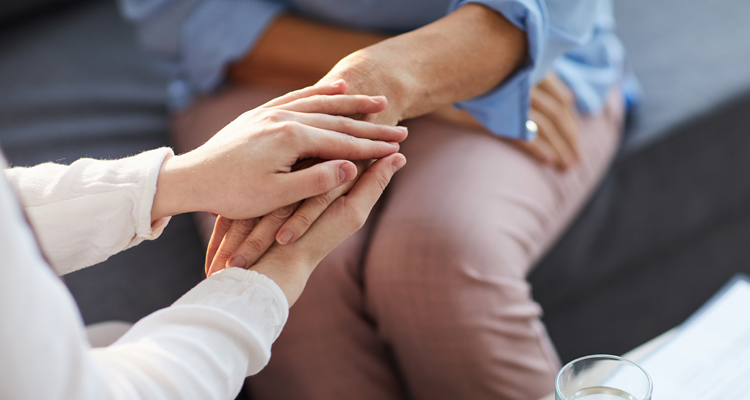
Cognitive-behavioral therapy is a type of psychological treatment that focuses on changing thoughts, beliefs, and feelings associated with specific issues including depression, anxiety, addiction, and yes, sleep! By changing your unproductive thoughts and behaviors, you can reduce symptoms and learn to adopt healthier patterns of behavior and thinking while also learning coping skills.
So, how can these basic principles be used to treat insomnia and other common sleep disorders?
CBT-I explores the way you think, the things you do, and how these actions impact sleep. A therapist can help identify which thought patterns and behaviors are triggering your insomnia. Not everyone has accurate beliefs about sleep. For example, some people don’t believe you need 7 to 9 hours of sleep to feel fully rested and restored. Many people are guilty of engaging in behaviors that are sabotaging sleep like using digital devices before bed, going to sleep at different times every night, and lying in bed for hours staring at the ceiling. All of these thoughts and behaviors could be the cause of your insomnia. CBT-I works to identify these triggers and offer healthier alternatives.
Common types of CBT-I include:
- Cognitive restructuring
- Stimulus control
- Sleep restriction
- Meditation and mindfulness
Sleepio
Espie’s sleep therapy program, Sleepio, focuses primarily on CBT-I and self-help techniques. Participants start by taking a short sleep test to determine their sleep score. This score will range from 0 to 10. After the test, users receive a personal sleep report via email. If you decide to sign up for the full CBT program, you’ll be asked to complete a more detailed questionnaire. You’ll receive log-in information and access to a personalized, 6-week insomnia course run by an animated sleep expert known as ‘The Prof’. After completing 6 core sessions, users learn to adjust their schedules, lifestyle, and thoughts to gain more control over their sleep and health.
Sleep and Mental Health
Because CBT is effective at treating both sleep and mental health disorders, Espie focuses a lot of his research on the correlation between these two factors. The relationship between sleep and mental health is complicated. In some cases, mental health disorders like depression or anxiety can cause insomnia. Additionally, certain medications designed to treat depression can also disturb sleep. People who suffer from chronic sleep deprivation but don’t have a preexisting mental health disorder may, over time, find themselves feeling depressed and anxious due to lack of adequate sleep.
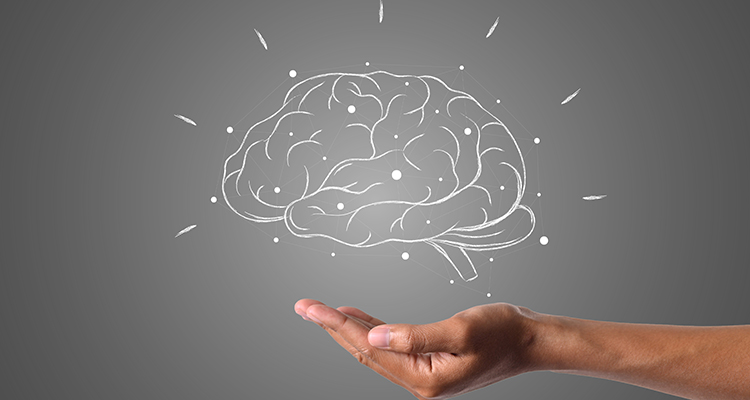
Some of Espie’s studies surround the effects of the pandemic on sleep, with 40% of Americans reporting poor sleep due to stress or anxiety. Espie explains that sleep helps regulate our mental health but that good sleep, even during the best of times, can be difficult to achieve. The inability to sleep at night can lead to worsening mental health during the day, creating a vicious cycle of unhealthy behaviors that are difficult to break. Espie refers to sleep as “nature’s medicine” and claims that sleep’s restorative properties help people perform everyday mental functions.
Some of Espie’s main tips for combating both mental health issues and insomnia include:
Developing a Personalized Sleep Schedule
Schedule and routine help support mental stability and fortitude while also better preparing your mind and body for sleep. Espie suggests experimenting with different schedules and times until you figure out what your natural body rhythms are. Your circadian rhythm is like an internal clock inside your body that regulates cycles of alertness and sleepiness by responding to changes in your environment and light.
Espie suggests choosing a specific time each night to go to sleep and wake up the next morning. Continue this schedule even on weekends, days off, and while traveling. Doing so will help your body naturally adjust to these sleep-wake cycles, promoting more alertness during the day and sleepiness at night. Espie warns against forcing yourself to stay awake when you’re tired or go to bed if you’re wide awake. The sleep expert says that this is counterproductive and may worsen both stress and sleep problems.
Become Sleep Efficient
Another suggestion from Espie is to be more sleep efficient. Take a look at how many hours you spend in bed and how many of those are actually spent sleeping. For example, if you’re in bed for 9 hours but only sleeping for 6, this isn’t efficient. There are a few ways to combat this.
Start by performing relaxing activities before bed that doesn’t include your phone, television, or a computer. The blue lights from these devices prevent your brain from releasing the sleep hormone melatonin. Instead, swap your kindle for a book or journal, take a hot soothing bath, or meditate. Avoid lying in bed awake for too long. If you can’t fall asleep for 20 minutes, get up and perform one of these non-stimulating activities. Espie says that over time, you’ll develop a routine and sleep habits that work best for you and your lifestyle.
Cultivate Productive Sleep
Not all sleep is created equal. Espie suggests you cultivate and foster productive sleep that leaves you feeling rested, restored, and rejuvenated.
One suggestion is to tie up any loose ends before bed. Espie says by doing this, you reduce stress and prevent racing thoughts or unsettling feelings that might keep you up at night. Try making an organized list of everything you need to do the next day. This is one technique Espie uses in treating insomnia patients and claims it’s extremely effective at helping your mind settle and prepare for sleep. Another suggestion is to create a “wind-down” routine that includes breathing exercises and some of the other relaxation techniques mentioned above.
Sleep and Metabolic Health
Another area of expertise for Espie is the connection between sleep and metabolic health. Obesity is one of the leading causes of insomnia in patients suffering from obstructive sleep apnea. Additionally, excessive weight gain puts you at higher risk for developing heart disease, diabetes, and high blood pressure.

Scientific evidence suggests a connection between sleep loss, sleep disorders, and metabolic health. Certain laboratory studies indicate that sleep deprivation can alter glucose metabolism and the hormones involved in regulating metabolism. These include an increase in ghrelin levels and a decrease in leptin.
Espie acknowledges that lack of sleep increases your risk of developing metabolic syndrome. Metabolic syndrome is used to describe a series of risk factors for certain ailments like heart diseases and type 2 diabetes. It’s also referred to as insulin resistance syndrome. Slow metabolism and obesity are also risk factors. In one study, individuals who slept less than 6 hours a night had a larger waist circumference compared to those who slept 8 hours. It’s also interesting to note that excessive sleep may also increase your risk of metabolic syndrome. That’s why Espie claims it’s so important to get to know your body, its needs, and its natural rhythms.
Exercise and physical activity can mitigate several of these issues including insomnia, the risk of metabolic syndrome, and mental health issues. For starters, exercise is good for your physical health, helping you maintain a healthy weight and preventing obesity as well as heart disease and type 2 diabetes. Physical activity can also reduce stress and ease depression and anxiety symptoms. When you exercise, your brain releases endorphins that promote feelings of happiness, relaxation, and an overall sense of wellbeing. While physical activity can’t cure certain mental health disorders, it can reduce stress and boost your mood. Exercise is also proven to improve sleep, especially when you exercise early in the day. Not only does it promote alertness and increased focus but it makes you feel more tired at night, making it easier to fall and stay asleep.
Espie’s 5 Principles of Sleep
Espie has written hundreds of papers and scholarly articles on sleep, CBT-I, and other self-help techniques for achieving quality sleep.

Here’s a brief look at the five principles of sleep, according to Espie.
1. Value Your Sleep
Espie stresses the importance of valuing and prioritizing sleep. Like you need oxygen to breathe and water to survive, you also need sleep to function. Espie also points out that sleep plays an essential role in so many of your bodily functions including physical growth and development, learning skills, memory, the ability to regulate emotions, and fight infection. The sleep professor encourages people not to “cut corners” where sleep is concerned. He urges people to value sleep as highly as they do freshwater, good food, and quality air.
2. Prioritize Sleep
While taking sleep seriously is step one in the process, you also need to prioritize sleep which means taking action. Espie suggests making decisions that either put sleep first or at least put it higher on your list of things to do. Listening to your brain and body helps too! Be kind to yourself and remember that it’s okay to feel sleepy or be tired. It’s just your body’s way of telling you that you need rest. Espie says that it can be difficult but you may need to let go of the things you want to do and get some much-needed shut-eye including leaving a party early, declining certain plans, or adjusting your travel schedule.
Another factor that makes prioritizing sleep difficult is the fact that not all of the circumstances are always under your control. Things like working the night shift, having a baby, or facing a major life change can all interfere with your ability to put sleep first. Espie suggests you make specific commitments and set behavioral goals to create the necessary space for sleep in your life whenever possible.
3. Personalize Your Sleep
No two people are alike, which is why Espie states that improving your sleep and easing insomnia symptoms is about understanding your personalized sleep requirements and taking the necessary steps to satisfy those needs. Espie says that everyone’s sleep patterns vary as much as their appetite, preferences, and physical characteristics do. The best way to personalize your sleep is by trial and error. Espie says it’s about “experimenting to find the best fit.”
A few things to consider are how long do you need to be in bed to get enough sleep? How long does it take you to fall asleep? And what relaxation techniques work best for calming your nerves and promoting deep sleep? Answering these questions and trying different things will help you determine your ideal “sleep window”.
4. Trust Your Sleep
Espie says that getting into a healthy sleep pattern is as easy as trusting your body. Once you get your pattern and timing right, let your natural sleep needs and patterns guide you, rather than the other way around. Espie suggests focusing on consistent, reliable sleep the same way you focus on a balanced diet and hydration to stay healthy.
Most people who sleep well, simply trust and expect sleep to come spontaneously. Espie said that most “seldom even think about it”. These people fall asleep because they feel tired and fall asleep following a consistent pattern. Espie says that trusting your sleep means fighting the temptation to grasp for miracle solutions or answers. Doing this only increases your anxiety and leads to a preoccupation or obsession with sleep. This can create increasingly negative ideas and feelings about sleep, worsening insomnia symptoms.
5. Protect Your Sleep
Espie says that you have to protect your sleep the same way you protect your physical health and mental wellbeing. And that means avoiding things that will negatively impact your sleep or upset your sleep patterns. It’s here, Espie says, that sleep hygiene comes into play, as well as several CBT-I strategies.
Protecting your sleep falls into several categories starting with establishing sleep patterns that prevent too much change. Once you find a pattern that works, stick with it and don’t overthink it. Espie says that a racing mind is the biggest “sleep enemy” and therefore, requires the strongest form of protection. Put the previous day to bed before you put yourself to bed! Here’s where taking a few minutes to settle any tasks from that day and plan for the next comes in handy. Espie says it’s also important not to force yourself to sleep. Don’t get into bed until you’re tired enough to fall asleep. Certain lifestyle choices like consuming caffeine or alcohol too close to bedtime can also interfere with sleep, making it difficult to fall and stay asleep.
Environmental factors also come into play, Espie says. The ideal environment is not too hot or too cold, not too noisy or too quiet, and not too bright or too dark. It’s about finding a perfect balance. Lastly, protect yourself from the blue light from screens like your smartphone, tablet, and television. Instead of scrolling through social media or playing video games, try a less stimulating activity like meditating or listening to soothing music.
Colin Espie’s Contributions to Sleep Medicine
If you’ve ever wondered where certain theories and therapy treatments for insomnia originate, you can turn to Colin Espie for at least some of these contributions. Espie has had a long career in the world of sleep medicine and education. From professor and chairperson to the founder of Big Health and Sleepio, Espie has dedicated his life to teaching self-help techniques for easing insomnia symptoms and enjoying the many benefits of CBT.
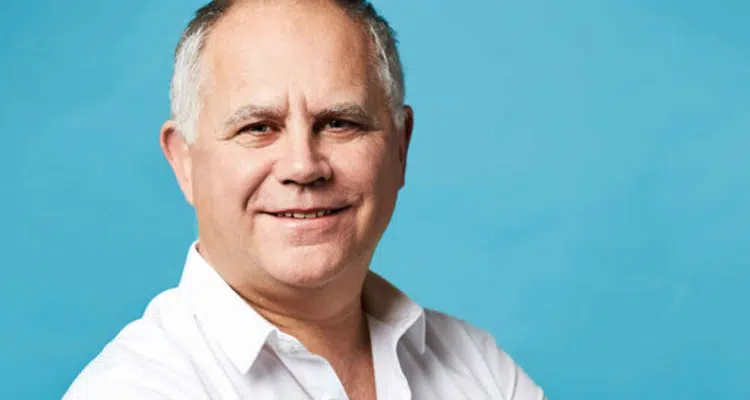
If you’re facing sleep troubles, new or old, the sleep experts at Somnus Therapy can help. Somnus Therapy utilizes many of the techniques and practices studies developed by Epsie himself including CBT-I, cognitive restructuring, and stimulus control. Find out more about insomnia treatment at home and what you can do to improve your sleep quality and overall health.














